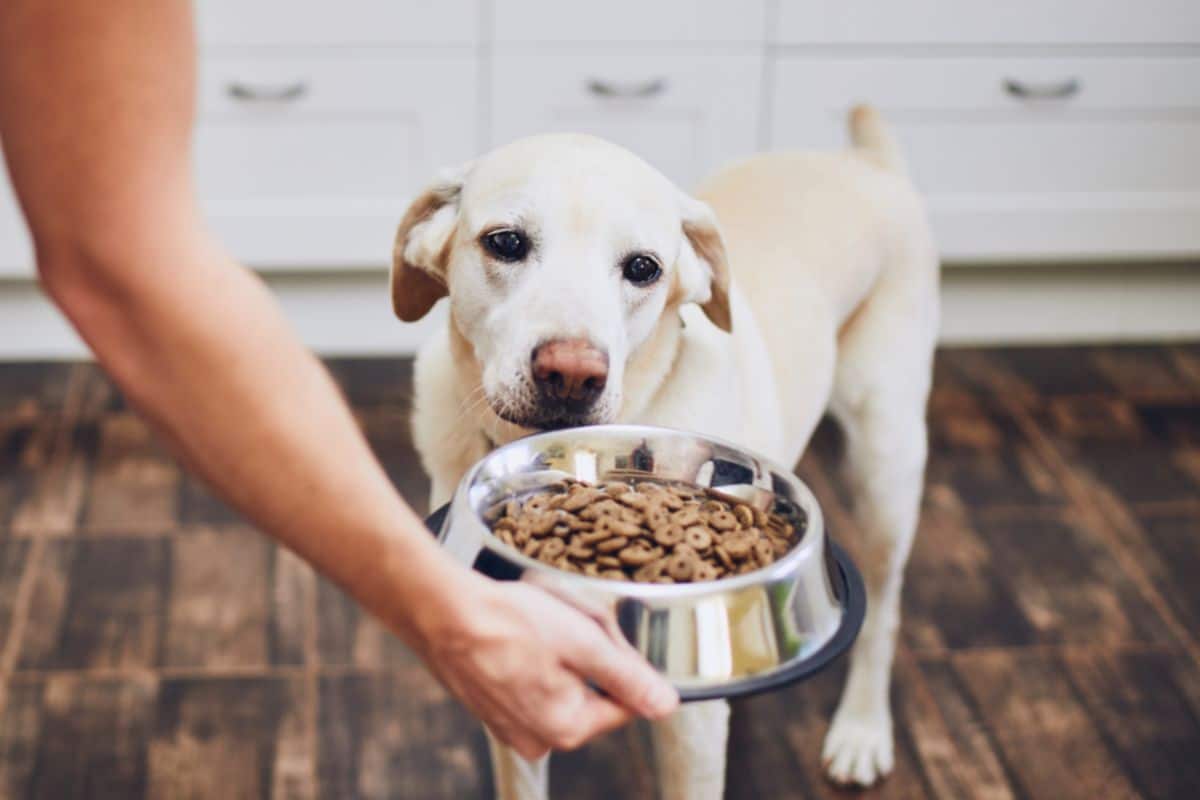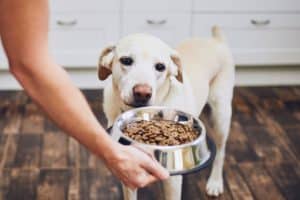As pet owners, we always want our furry friends to be healthy and happy. However, like humans, dogs can experience digestive issues, including constipation.
It involves difficulty in passing stool and infrequent bowel movements. Common reasons for constipation in dogs are inadequate hydration and lack of exercise. Some other culprits are medication side effects, obesity, orthopaedic problems, fibre intake, and a large-sized prostate gland.
If it remains untreated, piles of faeces can heap up at the anal end, which can cause unproductive strains, loss of appetite, vomiting, and lethargy. Constipation needs to be cured immediately.
There are many medications, like probiotics, that you can give your dog to cure constipation. But that may require a visit to the vet for the prescription. If you are short on time, you can try certain natural remedies to ease your dog’s discomfort.
1. Natural Remedies for Constipation
If your dog suffers from constipation, several natural remedies can help get its bowels moving again. Here are some effective ways to treat constipation in dogs naturally:
I. Proper Hydration
Water is necessary for food digestion and to prevent constipation. Inadequate water intake is a primary cause of this stomach illness.
Dogs that drink less water often have difficulty passing stool, which is hard and dry. So, always ensure adequate water for the dog every day.
II. Add fibre to the diet.
Adding more fibre to your dog’s diet can help prevent constipation and promote regular bowel movements. You can add fibre to your dog’s diet by giving them canned pumpkin (not pumpkin pie filling), sweet potatoes, green beans, or cooked brown rice.
III. Pumpkins:
Pumpkin is a safe and effective natural laxative for dogs. It is high in fibre and water content, which helps to soften stools and promote regular bowel movements.
You can use canned pumpkins or puree a fresh pumpkin. Most dogs love the taste of pumpkins. Avoid giving your dog pumpkin pies when he suffers from constipation because of their added sugars and spices.
Read More: Best Dog Food For Firm Stools in UK 2023
IV. Aloe Vera
Aloe vera naturally has super-advantageous effects like a cleanser for the digestive system. It can comfort the constipated dog very quickly. You can give aloe vera juice in small quantities—about half to one teaspoon—by adding it to dog food.
Use it twice a day. However, care should be taken for dogs allergic to plants like aloe vera. You can consult the vegetarian expert for a proper prescription before treating your dog.
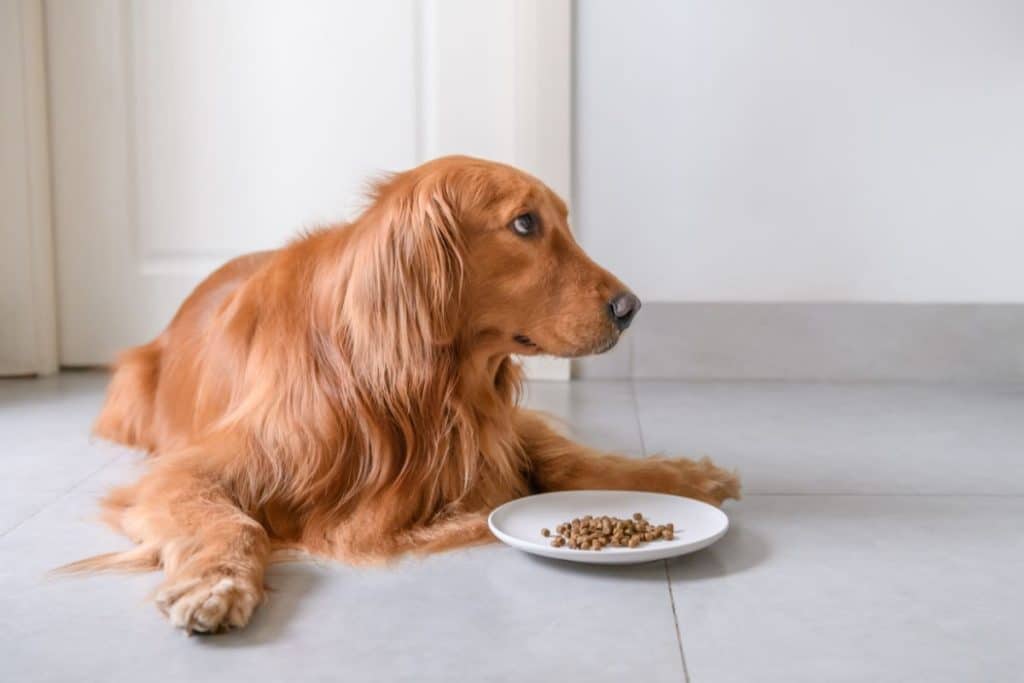
V. Milk
Milk is usually a quick go-to remedy for treating constipation. If your dog is lactose-tolerant, milk can help cure the pain due to constipation. If the dog is lactose-tolerant, he will immediately vomit after having milk.
Milk, besides exercise, promotes motility in the intestines and can quickly treat the problem. You can give your dog one-fourth to half a cup of milk about twice daily. It’s a surefire way to treat constipation in dogs.
Constipation needs to be tended to as soon as possible. Keep an eye on your dog’s potty routine of your dog I know that sounds gross, but you would not like your dog to suffer from pain. You can try natural treatments at home if the problem has just begun. In case of a prolonged constipation problem, contact the vet to suggest good medicine for your dog.
VI. Exercise and massage
Exercise can be the easiest yet most effective way to treat constipation in dogs naturally. Dogs’ exercise needs must be regularly fulfilled to avoid digestion problems. Physical Activity increases the circulation of blood.
Moreover, exercise aids in the motility of food and the removal of waste products. Lazy toy dogs breeds like Cocker Spaniel and Great Dane is highly vulnerable to constipation.
Hyperactive dogs like pit-bull dachshund mixes and German shepherds require a lot of exercise. If they don’t get adequate daily activity, they can suffer from constipation too.
Get your dogs for a 30-minute walk daily to prevent or treat constipation.
VII. Probiotics and digestive enzymes
Probiotics and digestive enzymes can help improve your dog’s gut health and promote regular bowel movements. Probiotics are beneficial bacteria that help maintain a healthy balance of bacteria in the gut, while digestive enzymes help break down food and improve nutrient absorption.
Yoghurt naturally contains a live culture of beneficial bacteria for gastrointestinal health. Yoghurt is an excellent replacement for probiotics. It can help to enhance the multiplication of good bacteria in the stomach.
Yoghurt can assist in the fermentation process of digestive material so that it can smoothly pass and get absorbed in the colon. A maximum of 2 tbsp is suitable for small dogs, and 4 tbsp is enough for large dogs.
2. Important Precautions Before Using Natural Remedies
I. Consult your vet before trying home remedies.
Some of these remedies may not be suitable for all dogs, especially those with underlying medical conditions or taking certain medications.
II. Be cautious while introducing new foods to your dog’s diet.
You must make the change slowly and in small quantities to avoid upsetting your dog’s stomach. Sudden changes in diet can lead to digestive upset, including diarrhoea and vomiting.
Choosing foods safe for dogs and free from harmful ingredients is also important. Additionally, your vet can recommend safe and nutritious foods beneficial for dogs with constipation.
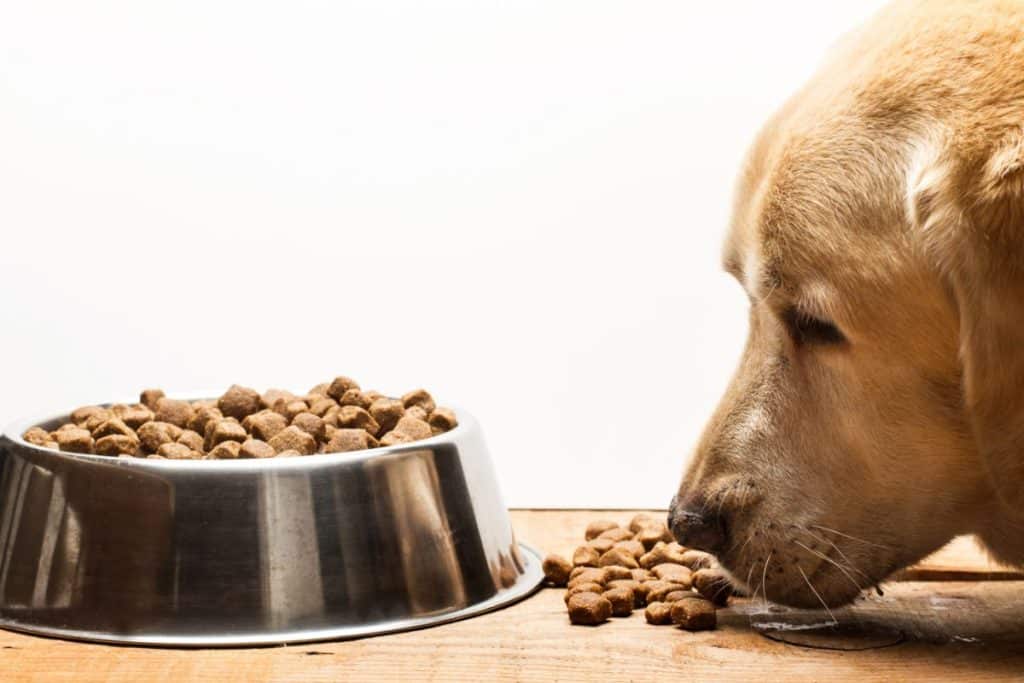
III. Monitor your dog’s bowel movements and overall health.
Keep track of how often your dog has bowel movements, the consistency of their stools, and any other symptoms they may be experiencing. If you notice any changes or concerns, contact your vet for advice.
Read More: Why should you add vegetables to your dog’s meals?
3. Why is my dog struggling to poo?
I. Dietary Factors
If your dog isn’t getting enough fibre or is consuming too much-processed food, this can cause their stools to become dry and hard, making it harder for them to pass.
Additionally, eating a lot of bones and not chewing food properly can lead to constipation among dogs.
To help prevent constipation caused by diet, make sure your dog eats a balanced diet that includes plenty of fibre. Vegetables such as sweet potatoes, green beans, and pumpkin are all great sources of fibre.
II. Dehydration
When your dog isn’t drinking enough water, their body will try to conserve as much water as possible, leading to dry and hard stools that are difficult to pass.
Consider adding wet food to their diet or soaking their kibble in water to help increase their water intake.
III. Lack of Exercise
Just like humans, dogs need regular exercise to help keep their digestive systems healthy. Going for walks, playing fetch, and even swimming are all great ways to help keep your furry friend active and their digestive system working properly.
IV. Medical Conditions
In some cases, constipation in dogs can be caused by an underlying medical condition such as
- Anal gland problems
- Intestinal blockages
- Inflammatory bowel disease
- Tumours
- Neurological disorders
If your dog is experiencing chronic constipation, it’s important to take them to the vet for a check-up.
4. When to seek veterinary care for constipation in dogs?
Constipation in dogs can sometimes be resolved with natural remedies, but there are times when veterinary care is necessary.
I. Chronic constipation
If your dog has been constipated for several days and has not responded to home remedies, immediately take them to the vet. Chronic constipation can lead to a buildup of toxins in the body and cause serious health problems.
Your vet will perform a physical examination, take a stool sample, and may suggest blood tests and X-rays determine the cause of constipation.
II. Presence of blood in stools
Blood in your dog’s stool is never normal and can be a sign of a serious condition. Some possible causes of blood in the stool include internal bleeding, tumours, and infections.

III. Vomiting and abdominal pain
If your dog is constipated and shows signs of vomiting and abdominal pain, it could mean a blockage in the intestines. Your vet may need to perform surgery to remove the blockage.
IV. Difficulty urinating
It can indicate a urinary tract infection or other serious medical condition. If your dog is constipated and experiencing difficulty urinating, take them to the vet.
Read More: What is the best worm treatment for dogs? How to do deworming at home?
5. How to treat constipation in dogs using medicine?
Before we delve into specific medications, it’s important to understand that you should always consult your veterinarian before administering any medication to your dog.
Your vet will be able to determine the underlying cause of your dog’s constipation and recommend the appropriate medication.
I. Laxatives
Laxatives are medications that help soften the stool and promote bowel movements. Several types of laxatives can treat constipation in dogs, including:
- Lactulose is a synthetic sugar that draws water into the colon, softening the stool and making it easier to pass. It’s often used to treat chronic constipation in dogs.
- Miralax is a popular over-the-counter laxative that draws water into the stool, softens it, and promotes bowel movements.
- Mineral oil is another common laxative that lubricates the colon and softens the stool.
II. Stool softeners
Stool softeners are medications that help soften the stool and make it easier to pass. They are often used in conjunction with laxatives to provide relief from constipation.
- Docusate sodium is a stool softener that reduces the stool’s surface tension, allowing water to penetrate and soften it.
- Psyllium is a natural fibre that can help soften the stool and promote bowel movements. It works by absorbing water and bulking up the stool.
III. Prokinetics
Prokinetics are medications that stimulate the muscles in the digestive tract, promoting the movement of food and waste through the intestines.
- Metoclopramide is a prokinetic that works by increasing the contractions of the muscles in the digestive tract, which helps move food and waste through the intestines.
- Cisapride is another prokinetic that can work by increasing the release of a neurotransmitter called acetylcholine, which stimulates the muscles in the digestive tract.
IV. Enemas
In severe cases of constipation, your vet may recommend an enema to help remove the impacted stool from your dog’s colon.
It is important to note that a trained veterinary professional should only administer enemas. Attempting to administer an enema at home can be dangerous and may cause injury to your dog.
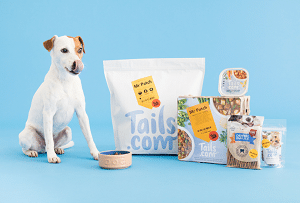
6. Frequently Asked Questions (FAQs)
I. Can I use OTC laxatives for my dog’s constipation?
Generally, it’s not recommended to use human laxatives for dogs without consulting with your veterinarian. Some human laxatives can be toxic to dogs and cause serious health problems.
II. Can I use essential oils to relieve my dog’s constipation?
You should consult with your veterinarian before using essential oils on your dog. Some essential oils can be toxic to dogs and cause harm if ingested or applied topically.
III. How long does it take for natural remedies to work for dog constipation?
The effectiveness of natural remedies for dog constipation varies depending on the severity of the condition and the underlying cause. In some cases, it may take several days for the remedies to take effect.
IV. Can I prevent dog constipation by feeding a high-fibre diet?
Generally, feeding your dog a high-fibre diet can help prevent constipation. Make sure to introduce new foods gradually to avoid digestive upset, and consult with your veterinarian to determine the best diet for your dog’s needs.
